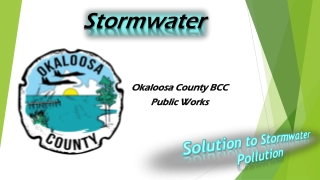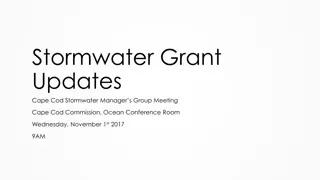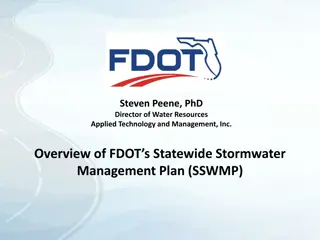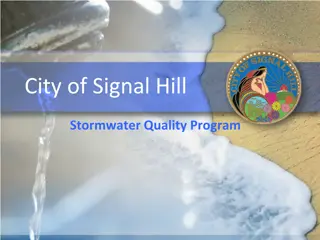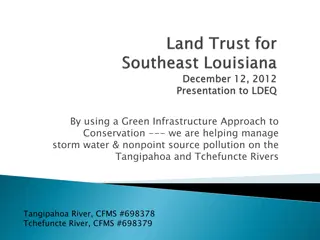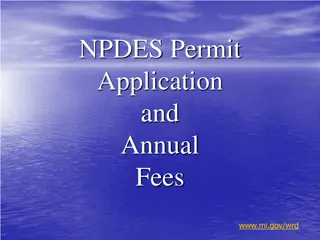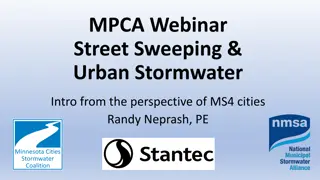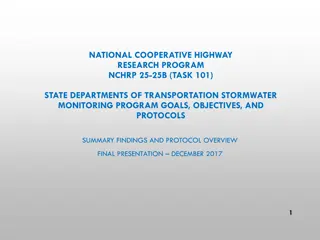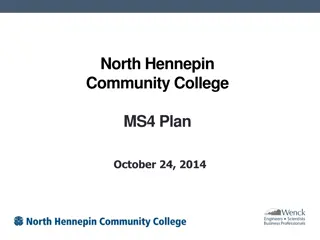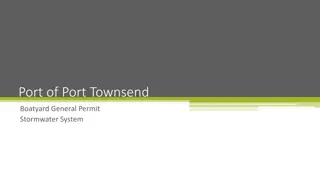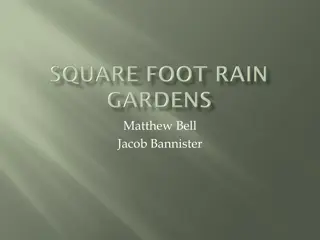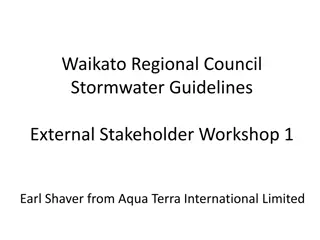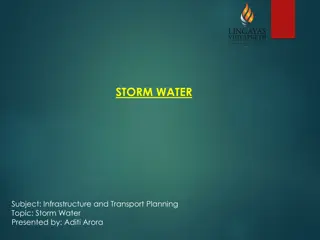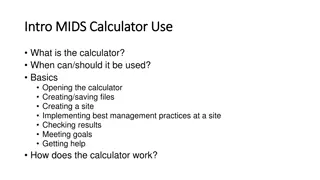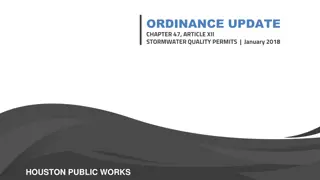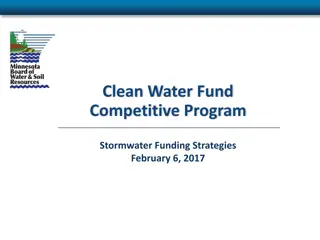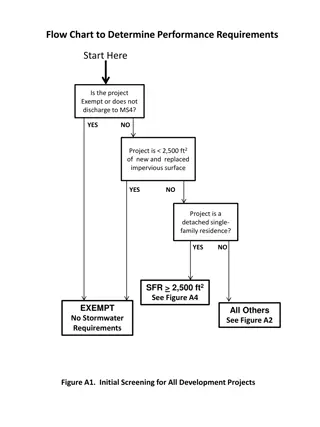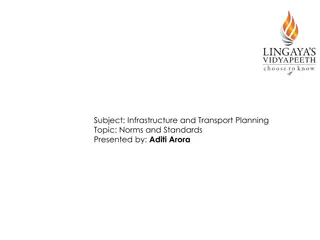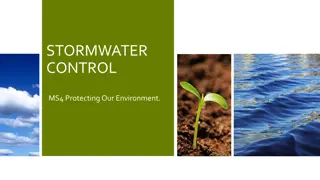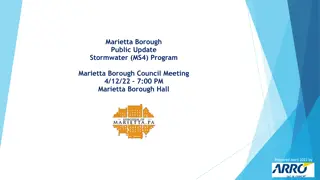Understanding the Greater Elkhart County Stormwater Partnership
The Greater Elkhart County Stormwater Partnership plays a vital role in managing stormwater in the region. Through initiatives such as the Municipal Separate Storm Sewer System (MS4) and Storm Water Quality Management Plans (SWQMP), they address key control measures to prevent pollution and ensure water quality. Compliance with regulations like Rule 5 for Storm Water Pollution Prevention Plans is essential for construction activities. Public education, participation, and pollution prevention are at the core of their mission.
Download Presentation

Please find below an Image/Link to download the presentation.
The content on the website is provided AS IS for your information and personal use only. It may not be sold, licensed, or shared on other websites without obtaining consent from the author. Download presentation by click this link. If you encounter any issues during the download, it is possible that the publisher has removed the file from their server.
E N D
Presentation Transcript
Stormwater101 The Greater Elkhart County Stormwater Partnership Updated 3/2019 Based on City of Franklin, IN Storm Water Education Program
What is the Greater Elkhart County Stormwater Partnership? Learning Objectives What is a MS4? What is stormwater? Why is managing stormwater important?
The Greater Elkhart County Stormwater Partnership What is a MS4 and how does it work?
MS4 stands for MS4 Municipal Separate Storm Sewer Systems and This partnership includes: Elkhart County The Greater Elkhart County Stormwater Partnership City of Elkhart City of Goshen Town of Bristol
Guidance Documentation The Federal Clean Water Act requires storm water discharges from certain types of urbanized areas to be permitted under the National Pollutant Discharge Elimination System (NPDES) program. MS4 November 1990 EPA began Phase I of its storm water program requiring states to develop regulatory programs to address pollution issues associated with storm water. and Today Storm Water Phase II has been established to reduce the impacts of storm water run-off from construction, industrial, municipal, governmental and institutional sources. The Greater Elkhart County Stormwater Partnership General Storm Water rules are found in 325 IAC 15 (Article 15). August 2003 - 327 IAC 15-13 (Rule 13) established requirements for designated MS4 s entities to develop local Storm Water Quality Management Plans (SWQMP).
SWQMP Storm Water Quality Management Plans MS4 The MS4 s must address these 6 minimum control measures through their SWQMP and 1. Public Education and Outreach 2. Public Participation and Involvement 3. Illicit Discharge Detection and Elimination 4. Construction Site Runoff Control 5. Post-Construction Site Runoff Control 6. Pollution Prevention and Good Housekeeping The Greater Elkhart County Stormwater Partnership
Rule 5: SWPPPs (Storm Water Pollution Prevention Plan) MS4 327 IAC 15-5 a.k.a. Rule 5 is a performance-based state regulation designed to reduce polluntants that are associated with construction and/or land disturbing activities and The Greater Elkhart County Stormwater Partnership LONG STORY SHORT If someone disturbs more than one (1) acre of soil while developing land (not agriculture), they are regulated by a state rule and must have a storm water control and erosion prevention plan in place
Stormwater What is it and what do we do to control it?
Stormwater is water that originates from precipitation events, snowmelt, or runoff What is stormwater?
The Greater Elkhart County Stormwater Partnership works diligently to: Control flooding by installing, cleaning, and maintaining stormwater infrastructure such as curbs and gutters, street inlets, pipes, ditches, culverts, detention ponds, etc. How is stormwater managed? Regulate development by setting design standards, providing technical guidance, reviewing plans for development and redevelopment, inspecting construction sites, and enforcing regulations. Prevent pollution by educating the public, implementing clean water programs, inspecting and monitoring runoff, complying with federal and state regulations, and enforcing water quality standards set by the Clean Water Act.
The Greater Elkhart County Stormwater Partnership works diligently to: Control flooding by installing, cleaning, and maintaining stormwater infrastructure such as curbs and gutters, street inlets, pipes, ditches, culverts, detention ponds, etc. How is stormwater managed? Regulate development by setting design standards, providing technical guidance, reviewing plans for development and redevelopment, inspecting construction sites, and enforcing regulations. Prevent pollution by educating the public, implementing clean water programs, inspecting and monitoring runoff, complying with federal and state regulations, and enforcing water quality standards set by the Clean Water Act.
Unregulated urban industrial areas can contribute to heavy metal and toxic pollutants. Controlling Runoff = Controlling Stormwater The three types of runoff that contribute to controlling stormwater quality are: Rural Runoff. Urban Runoff Suburban Runoff Did you know that sediment, fertilizers and other chemicals are a result of farming? Even with pervious soils. Can you believe you pollute at home with fertilizers, phosphates and even your litter too?
Rural, Suburban, Urban, and Industrial Runoff Estimates Industrial and Urban have the most runoff, and the smallest amount of infiltration
Urban Runoff Pollutants Can you identify any sources of pollutants in these two urban areas?
Explore these links and the notes section below each slide for background information Learn More!
Landscape Architecture/Stormwater Management Lesson Plan Book https://cbtrust.org/wp-content/uploads/EPA-SW-Lesson-Plan-Book.pdf Great resource for lesson plans grade 3-12 Teacher Resources for Introducing Urban Stormwater Quality Concepts to the Classroom Supporting Information, Resources, and Classroom Activities https://www.colorado.gov/pacific/sites/default/files/WQ_Teacher-Resources.pdf Lesson plans following Colorado standards, but applicable activities and info Best Management Practices for Stormwater https://www.epa.gov/npdes/national-menu-best-management-practices-bmps- stormwater#edu Background information on stormwater BMPs
Elkhart County Soil and Water Conservation District 17746-B County Road 34 Goshen, IN 46528 Still want to know more? Contact us! 574-533-4383 ext 3 www.elkcoswcd.org


